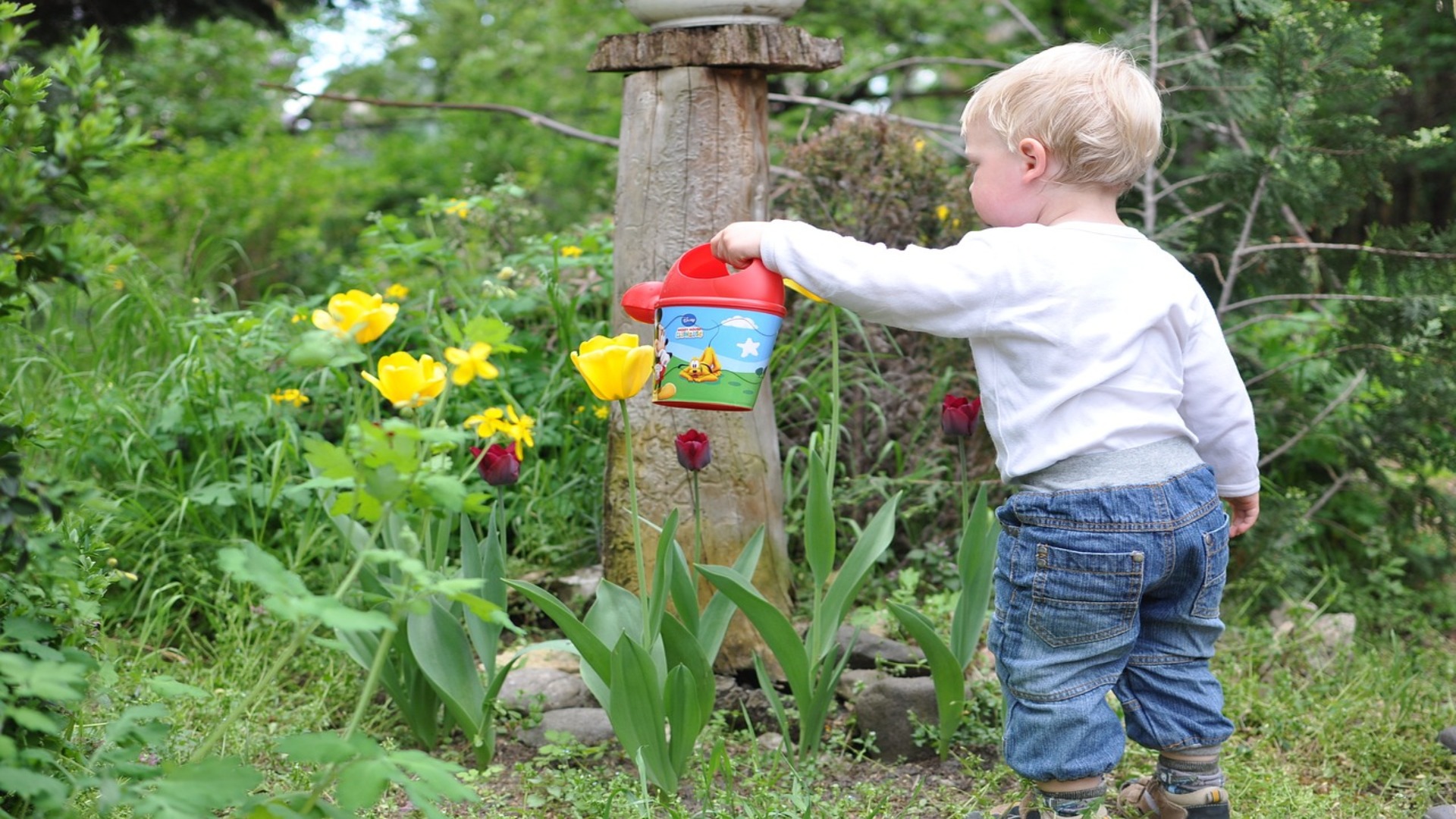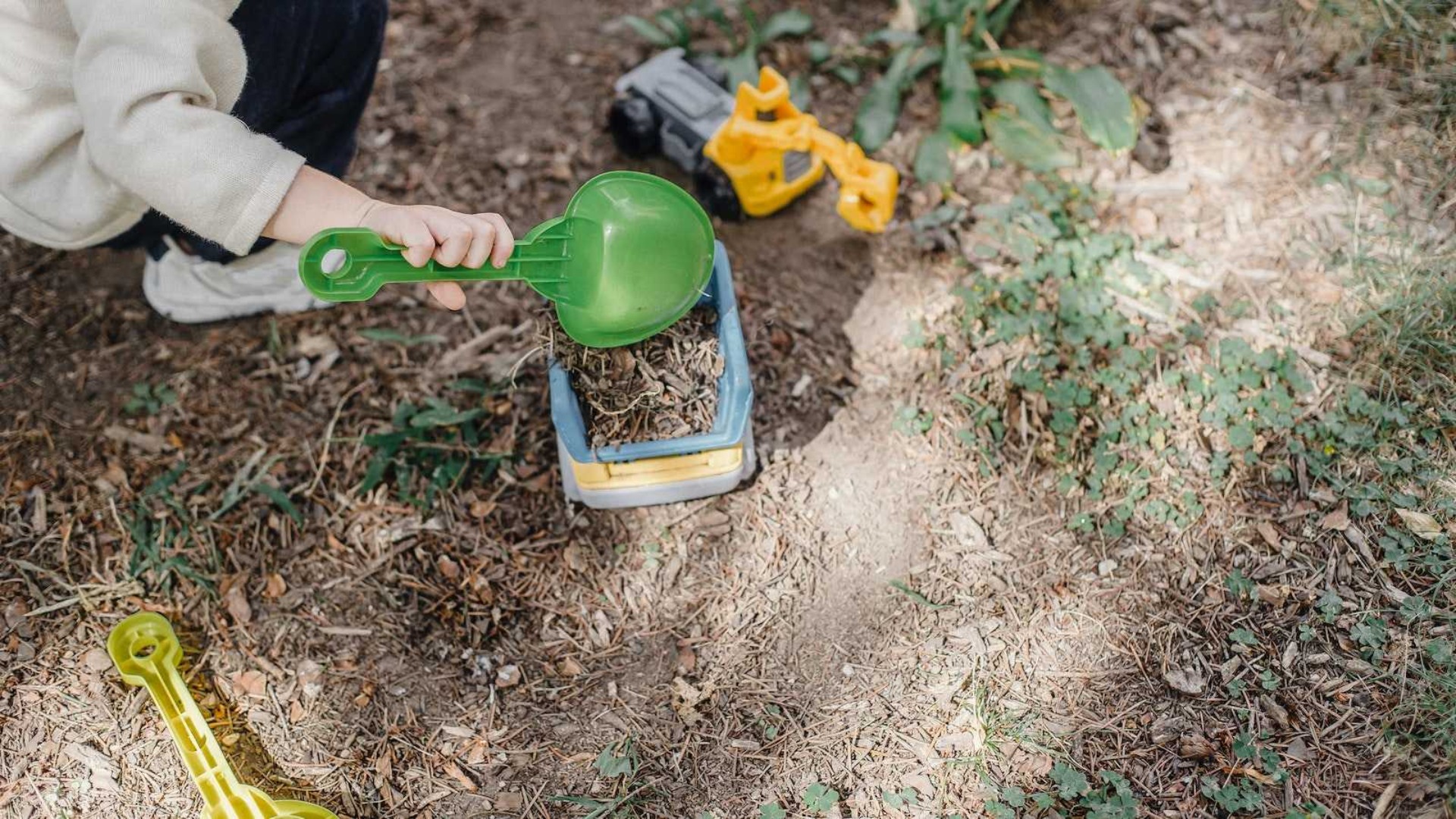Well-maintained outdoor spaces are essential for childcare centres to provide engaging play opportunities throughout the year. However, keeping gardens and play areas in good shape season after season can seem daunting when you’re already busy with many other responsibilities.
This guide will break down the essential gardening duties you must focus on month by month to safely maintain your outdoor spaces. From mowing lawns, pruning shrubs, tidying garden beds in spring to watering plants, checking for pests, and trimming hedges in summer, we’ve created custom-customised lists for each season.
In addition to the seasonal tasks, you’ll find our top tips for designing bush-friendly, child-appropriate gardens. With an emphasis on safety, suitable native plants for young kids, and ways to involve children in simple gardening activities.
Spring Gardening Tasks
One of the most crucial spring tasks is regularly mowing the lawn throughout the season. After lying dormant over winter, the grass will continue growing, so mowing helps keep it well-maintained and reduces any safety issues from overgrown grass. It’s also essential to prune any overgrown bushes, shrubs, or small trees during spring. This maintains their shape and size while plants are still dormant. Thoroughly inspect and weed garden beds to remove any unwanted weeds before they have the chance to spread further.

You’ll also want to check compost piles, turning the material inside to aerate it and speed up decomposition to provide nutrient-rich soil for gardens later. Lawns and vegetable patches may benefit from a light application of fertiliser compost to boost new growth. However, ensure any areas children use are kept fertiliser-free. Top up soil levels and mulch in garden beds, basins, and planters to protect them from erosion over the winter months. These critical spring gardening tasks will help wake your outdoor areas from winter dormancy.
Gardening and outdoor play spaces provide numerous benefits for children’s development. Planting seeds and tending to a vegetable garden can help children learn valuable skills. Gardening fosters fine motor skills through digging, planting, and pruning. It also promotes gross motor skills as children move around the garden space, carrying tools and exploring the outdoors.
Moreover, spending time in nature and community gardens exposes children to fresh air, positively impacting their overall well-being. Gardening activities can also boost children’s self-confidence as they witness the fruits of their labour and develop a sense of responsibility for nurturing living things.
Summer Gardening Tasks

The summer heat means maintaining gardens and play spaces, which is crucial during the warmer months. Consistent watering of plants and gardens becomes a top priority, as many will need watering at least twice a week to stay healthy.
Inspect plants and soil closely for signs of pests or diseases before minor issues become big problems. Trimming hedges and windbreaks during strong growth helps maintain their shape and appearance. It’s also a good idea to check paved playground areas and equipment for any cracks, lifts, or loose sections that may have developed over the winter and spring seasons. Repairs are best done in the milder summer weather before fall arrives.
Following these routine summer, tasks will help your outdoor environments thrive in the hotter months and keep play spaces safe. Checklists make it easy to remember what needs attending to weekly or monthly.
Autumn Gardening Tasks
Autumn brings cooler weather where gardens require less intensive work. However, preparation for winter remains essential. Raking up fallen leaves, seed pods, and debris benefits cleanup and plant health.

Leaving debris on the ground can smother lawns and foster disease. A final inspection of gardens helps tidy the remaining plant material before the cold months. Checking playground equipment ensures safe repair before hazardous winter weather.
Minor fixes prevent more significant issues, keeping play areas usable through season change. Attending to autumn essentials aids gardens and grounds entering dormancy fit for spring.
Winter Gardening Tasks
While gardens rest during winter, occasional tasks help maintain outdoor spaces. Regular inspections allow for the identification of damage from weather or wandering wildlife.
Basic lawn care, like mowing, prevents unattractive thatching. Edging and weeding bare beds removes unhealthy growth and debris.

Checking irrigation and drainage systems prevents freeze damage or flooding risks before spring use. Sandboxes and play structures require covering to protect moving parts from moisture and debris. Minor preparations now smooth spring awakening. With minimal winter effort, your centre’s grounds will smoothly transition seasons and welcome kids to renewed outdoor fun in warmer weather.
Tips for Bush-Friendly Child Gardens
When designing outdoor spaces for children, considering the native Australian bush fosters educational play. Involving local plants familiarises young explorers. Focusing on safety, choose species with no toxic berries, spines or allergens. Many natives attract helpful wildlife without danger. For small hands, select bushes like wattles with exciting seed pods unlikely to choke.
Ground covers like crossed legs provide sensory exploration minus sharp leaves. Involving children in simple propagation and planting nourishes stewards for the bush.
Having reasons to return to natural areas inspires future conservationists. With basic structures and native greenery, your outdoor classroom blossoms with lessons outside the door.
Incorporating a garden space in an early childhood or childcare setting can provide new and exciting ways for children to learn and explore. Gardening activities like planting flowers and growing fresh food can introduce the concepts of healthy eating from an early age. These hands-on experiences bring instant gratification and foster essential skills in young learners.
Furthermore, tending to a garden encourages social skills as children collaborate, share tasks, and engage in teamwork. The sense of responsibility involved in caring for plants can contribute to building self-confidence and a sense of accomplishment in early childhood.
Keep Your Centre’s Gardens in Prime Shape All Year Round
For busy childcare centre directors and educators, maintaining well-kept outdoor spaces can be a logistical challenge on top of your many other responsibilities. At Aaron’s Outdoor, we understand how difficult it can be to find the time needed to properly care for children’s play areas and gardens throughout the changing seasons.
We’ve developed this comprehensive guide to the monthly must-do gardening tasks. From seasonal checklists to our expert tips, we’ll help you streamline your landscaping workload so kids can keep enjoying rich outdoor play and learning. Following our simple, customised plans tailored for centres, you can rest easy knowing your grounds are beautifully maintained with minimal effort.
If you need additional assistance with garden design, maintenance services, or supplies, contact the team at Aaron’s Outdoor. As specialists in early education outdoor spaces for many years, we can provide custom solutions to meet your centre’s unique needs. Whether you need help with planting, weeding, or repairs, our friendly staff is ready to support you. Your children will thank you! Get in touch today to discuss how we can help.





